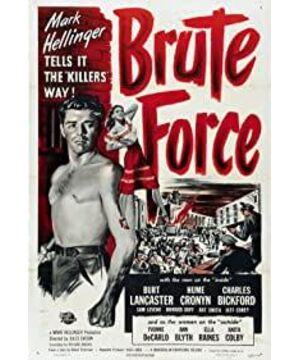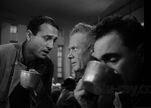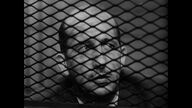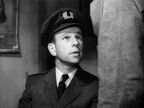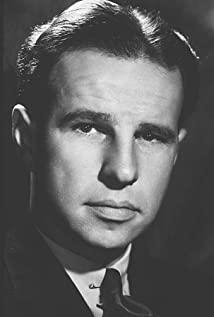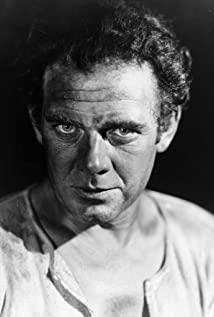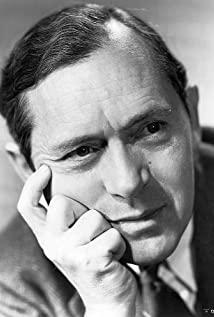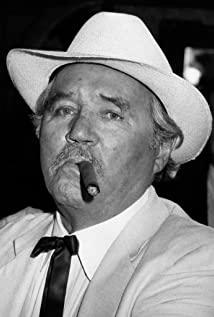"I'm not satisfied with all of my work. The only one I really like is 'He Must Die', but I'd like to remake it if possible." When he likes it, there is no mention of "Fight of Men", nor "Blood on the Tiger's Head Gate", the former is the most glorious work of his career, which won him the Best Director Award at the Cannes Film Festival in 1955, And was called "the best noir film I've ever seen" by François Truffaut, the latter is his famous work, which made him famous. There are emotional factors in Dassin's preference, because "He Must Die" is his first film with his second wife, Melina, and has special commemorative significance. Melina is a Greek socialite, and she is as full of fighting spirit as Daxin. The two cherish each other, sympathize with each other, and the combination with Melina allows Daxin to start his second life. Compared with the first half of his life, it may not be more brilliant. , but definitely happier. In fact, Daxin's value orientation extended to the standard of mate selection has been fully revealed in his famous work "Blood on the Tiger's Head Gate". In addition to conveying the spirit of unremitting struggle for freedom, justice and fairness, "Blood on the Tiger's Head Gate" also plays a programmatic role in most of Daxin's works. The male group play, social metaphor, and tough guy image appearing in this film , the friendship between life and death and other Daxin elements have been reproduced in many subsequent works. Fighter technology will continue to improve, art may not. There are many high-quality prison-themed films, but it is not easy to say which one can fully surpass the grandfather-level film "Blood on the Tiger's Head", which was released in 1947. The institutionalized thinking in "The Shawshank Redemption" is superfluous, and in the end, the ingenuity of the plot wins the hearts of the people; the reference to the good and evil of human nature in "Miracle in the Green Mile" is too fairy tale, using idealized methods to punish evil and promote good, beautiful But it is weak; even the American drama "Prison Break" is just a simple brainstorming, a model work of wits, and due to commercial reasons, it has gone from shocking to sighing, and Hong Kong's "Black Prison" series is closely related to a righteousness. Words, inevitably narrow. However, "Blood on the Tiger's Head Gate" has reached the height of a fable. It has both the gimmicks of a commercial film and the depth of a literary film. It is worthy of repeated scrutiny. Even today, it can still live on the commanding heights of prison-type films and overlook the crowd. descendants. One of the reasons for the invincibility of "Blood on the Tiger's Head Gate" is that the director Dassin injected the unyielding fighting spirit into the film and created a group of fighters. "Blood Splattered Tiger's Head Gate" tells the story of the prisoners in the R17 cell of the West Gate Prison in the United States. A tough prisoner, Joe Collins, was locked up for more than ten days for his struggle against prison tyranny. Captain Mance, the prison guard, tried to persuade him to give in, but to no avail. Baker, Spencer, Starco, Tom, Goyer and others who were in the same cell with Joe then killed Wilson in the forge. This man was Captain Mance's spy among the prisoners who betrayed Collins. Captain Mance, who lost his eyes and ears, wanted to develop a new eyeliner. He set his eyes on Tom in R17. Unexpectedly, although Tom looked gentle and weak, he was quite strong and refused the captain's request. The captain then fabricated a lie and said that Tom's wife A letter to divorce Tom, causing Tom, who loved his wife as his life, hanged to death. The prison was dying in a row, the warden was under pressure from the peak, All rights of prisoners should be cancelled. In the political struggle of the prison management, the power-hungry Captain Mance is advancing, and the weak warden is losing ground. With Mance in power, life for the prisoners was even more difficult. Collins decided to escape, with the unanimous support of the inmates in the cell, and even obtained the assistance of the prison doctor Walter, and joined the prison newspaper editor Garrig, the editor's deputy Louis and the newspaper typographer Kerisho and others to plan and plan very well. Careful, the odds are great. Unexpectedly, Mance had already received a tip on the day of the operation and was ready to fight. Collins learned of the leak and still launched a storm. Collins tied the whistleblower Starco to a winch and charged at the powerful machine gun. Although Collins and Mance perished together, the escape plan ultimately fell short. The prisoners were controlled by the guards, the main escape force was wiped out, and the R17 cell was empty. At the end of the film, the prison doctor treats Qu Bulikou's Jiali Suo. Talking about the tragic battle, he looked up at the sky through the cell fence and sighed: No one really escaped. "Blood Splash Hutou Gate" has a reverse aesthetic taste, which presents a group of prisoners as positive characters. First of all, in terms of appearance, prisoners Joe Collins and Spencer are tall and handsome, with strong physique and masculine beauty, and are sound "people", while the prison guard Captain Mance has a short stature and looks like a dwarf, symbolizing the ugliness of violent machines. Secondly, in terms of character, Collins and others are affectionate and righteous, upright, tenacious, daring to think and act, brave and decisive. Collins fought to the death, Tom was not afraid of coercion, and Luining was beaten to death and did not reveal secrets. A sturdy man, and the actual supreme ruler of Ximen Prison, Captain Mance, is twisted and perverted. Letters from prisoners, fabricated deadly lies, but a law enforcement officer has overstepped the law, abused prisoners, took pleasure in killing people, and acted violently like a fascist. The alcoholic prison doctor Walter is a Ruan Ji-like character. He said to Mance: You torture people, murder people, you are crazier than the most murderous prisoners here, you are the mentally ill here, not them. The truth of this sadism is revealed in one sentence. Again, at the height of the soul, prisoners and prison guards are also very different. Collins et al are heroic. "Blood on Hutoumen" is a situation drama infiltrated by existentialism. Sartre said: A hero makes himself a hero, a coward makes himself a coward. Existentialism advocates that people should make their own free choices in extreme situations, bear the consequences of their choices bravely, and encourage people to act without hope. This is exactly what the prisoners did. Collins and others knew that the plan was revealed, but they still gave it a go. Shameful arrogance, they made themselves heroes; while Mans was a captive of the lust for power, his soul crawls in the political sludge, and he was a more humble prisoner. Powerful, in fact, stern, he made himself a coward. Jules Dassin highlights the hard-boiled male characters and depicts the group of fighters by means of staggered contrasts. God created man according to his own image. For a movie, the director is undoubtedly God, and the director's personality, experience, thoughts, and interests will be projected in the movie he directs to some extent. Dassin said: "In Hollywood people will ask first, who is the star? Then what story? Lastly, who is the director. But in Europe it's the other way around." - Dassin himself is also a proponent of director supremacy, He believes that the director determines the value, success or failure of a film, and his own shadow is everywhere in his films. The prisoners in "Blood on the Tiger's Head" are full of fighting spirit, and Dassin himself was a relentless fighter throughout his life. When he was young, in order to fight against social injustice, he joined the Communist Party. The reason for his membership was: "I grew up in Harlem, where there are many people living in Harlem, surrounded by poor people who are suffering, but next to the bustling Fifth Avenue. This (joining the Communist Party) is a very natural choice." exile in France. The first time was when McCarthyism prevailed in the United States, when he was betrayed by Ilya Kazan (director of "The Pier"), Kazan testified him as a Communist in front of the Un-American Activities Committee and made him an anti-American blacklist , no one dared to work with him, lost his job, and had to self-exile in Paris, and later filmed "Fight of Men", which was a great success, which gave a slap in the face to the American film industry who did not let him make films, and art was also his one of the means of struggle. The second time was due to the 1967 Greek military coup d'état and the establishment of a dictatorial government. His wife, Melina, was accused of carrying out an "anti-national movement". He and his wife went into exile in France. Dassin and Melina actively participated in the movement against the dictatorship of the military government. Their home in Paris became a stronghold for members of the resistance group. Later, the Greek military and political dictatorship disintegrated and they returned home. Dassin's two trips to France are equivalent to two prison escapes, and they are also very successful. Dassin was still fighting in his later years. After Melina's death, he has been committed to fulfilling his wife's last wish - returning from the British Museum the Elgin marble statue stolen from the Parthenon more than 200 years ago. It is still a struggle to get things back from the robbers through peaceful negotiation. Jules Dassin has a righteousness, is very sensitive to social injustice and injustice, and has the courage to fight with actions, life is endless, and the struggle is endless. The reason why many fighters in his films are admirable is precisely Because they are an extension of the director's great personality. On March 31, 2008, Jules Dassin died in Athens, Greece, Prime Minister Kostas Karamanlis said: "It is very sad that Greece has lost an outstanding talent, an important filmmaker and a true friend. We will never forget his enthusiasm, talent, nobility and fighting spirit." Friendship Jules Dassin is adept at presenting male ensembles, the storytelling is methodical, and the mise-en-scene is a godsend. In many of his works, there are scenes of a group of men working together as a team. In "Blood on the Tiger's Head Gate", we all come to escape from prison; "The City That Never Sleeps", we all come together to solve the case; "Rogue of Thieves", we all come together to fight profiteers ; "Night and the City", we all wrestle together; "The Fight of Men", we all come to steal jewelry. In particular, the men in "Blood Splashed Tiger's Head Gate" and "Battle of Men" have forged an unshakable friendship through tacit cooperation. Although what connects them is not a great, glorious and correct cause, but something illegal and forbidden, such as jailbreaking and theft, they cherish this kind of feeling very much, and even live and die, and never regret it, which is quite tragic. This kind of man's friendship is rarely expressed in words, and is mostly implemented in silent actions. In "Blood on the Tiger's Head", Collins returned to the prison after being locked in a small dark room. Baker and Spencer shook hands with him. Tom brought him a cigarette, and Goyer lit him a cigarette and welcomed him back, expressing his gratitude to the fighter. His respect, but also revealed a firm attitude to stand on the same front as him. In "Battle of Men", after Tony is released from prison, Joe gives him money to help him through difficult times. Friends have the meaning of making money. This kind of friendship condensed by actions is very deep and moving, very weighty, and can stand the test. To be loyal to this friendship, these men would pay with their lives. In "Blood on the Tiger's Head", Tom committed suicide. On the one hand, he believed in Mance's lie and was completely desperate. On the other hand, he also did not want to become Mance's lackey. Keep the inmates safe. The editor-in-chief, Louie, was tortured by Mance. He still gritted his teeth and did not reveal the slightest escape plan. He died for the benefit of the group. In "Fight of Men", Tony rescued Joe's kidnapped son, and delivered the child to the door of his house in a situation where he was seriously injured and dying, fulfilling his promise to his friend. These men value this friendship that can be entrusted with life and death more than Mount Tai. If someone blasphemes and betrays this friendship, then they will never be soft on the traitor, and will execute him without hesitation. There is only one dead end. The two informers in "Blood on the Tiger's Head", Wilson and Starco, were brutally killed, one was squeezed into meat sauce by a punching machine, and the other was beaten to a pulp by the Maxim machine gun, and died horribly. "The Fight of Men" The Italian Caesar smuggled the stolen goods and gave them to the dancers, attracting Tony's rival Glat to snatch the jewelry. Mario in the group of four was cut to death by his throat. Tony sought revenge and found Caesar who was tied up and learned that It was he who caused Mario's death, and immediately shot Caesar to death. In order to maintain the sanctity of this friendship, they did not hesitate to sacrifice their lives, and they did not hesitate to take human lives. In addition, Dassin's attitude towards the traitor is as contemptuous and hated as the men in his works. In an interview, a reporter asked him what he thought of Ilya Kazan, who had testified against him as a communist and claimed that he had not betrayed his friends. Da Xin said to the camera: "He should tell me this, in front of me, to me." In life, in his works, Da Xin has always adopted Lu Xun's attitude towards the enemy when dealing with traitors. Not forgiving. The reason why "Blood Splashed Tiger's Head Gate" is difficult to surpass is not only the fighting spirit of the director, but also because the film has an unparalleled atmosphere, a high-mindedness, a broad vision, and a deep thought. Most directors bet on the plot reversal at the end of the film. , In this peculiar film, it has become a sublimation of style. Daxin's hand is better than most directors. With the lines of the doctor at the end of the film, it is difficult for this film to be classic or not. "Blood on the Tiger's Head Gate" is a story as well as a fable. The advantage of the fable is to build the philosophical structure of the film by means of symbolic hints, which not only conveys the value orientation, but also reserves the imagination space for the audience's positive reading. , misreading provides infinite possibilities. Another great function of the fable is to remove the preaching flavor of the film. Although Yang Dechang's preaching is profound, it also exposes the director's rigidity. He does not use technical methods to reason. , directly put the truth on the plate and send it to the audience. It seems considerate, but it deprives the audience of the fun of guessing. The director proclaims the teaching in the attitude of a mentor, and leads the crowd with the steps of the Messiah. It may not be able to respond to everyone, but it is easy to cause rebellious psychology. Because the director's approach puts himself and the audience in an unequal position, and regards the audience as a lost lamb, who needs the director's compassion to wake up and teach, and the audience will protest in their stomachs: I am not a paramecia , I have my judgment, I can think independently. Jules Dassin, on the other hand, will not go overboard. He was the former assistant director of Hitchcock. He knows the importance of film rhetoric. When referring to the film, he will not take a clear-cut "show", but follow the The iceberg principle (the iceberg is only one-eighth of the surface above the water, and the remaining seven-eighths are underwater), providing metaphors, point to point, and leave a lot of white space. The skillful use of metaphor is an indispensable element for Dassin to become a master of a generation. Most noir films are gloomy and pessimistic, exposing social ills and exposing the crisis of human nature. "Blood on Hutoumen" is a typical noir film, and its social care and human nature are quite serious. The line in "The Swordsman" says: Where there are people, there are rivers and lakes, and people's hearts are rivers and lakes. How can you quit the rivers and lakes? "Blood Splattered Hutoumen" also showed a similar awareness of nowhere to escape. The doctor sighed: No one really escaped. Yes, the world is a prison, society is a prison, how do you escape? Or more precisely: a totalitarian society is a prison. This kind of overall and macro metaphor has also been successfully used in Dassin's other works, such as "The City That Never Sleeps". The film is a Ukiyo-e in New York in the 1940s. Naked City, Dassin borrowed the characters in the film to say that the incident of a model being killed by a wrestler is just one of the eight million stories in New York, where New York is not just New York, but a microcosm of the entire United States; And the City" (also translated as "The Four Seas"), the famous film critic Michael Slug commented: "Dassin turned London into a deserted city full of shattered ideals and constant nightmares. He skillfully blended fantasy and reality seamlessly." Obviously, London here is no longer London, but a symbol of the entire post-World War II Western civilization. , Dassin's film noir and T·S Eliot's poem "The Waste Land", which expounds the loss of Western civilization, have a subtle spiritual resonance. In addition to the overall metaphor of prison-society, "Blood Splashed Tiger's Head Gate" also has many allusions to totalitarianism, or allegory. The literal translation of the title of "Blood on Hutoumen" is savage power, alluding to the inhuman tyranny of prisons (society). The film begins with an upward shot. What catches the eye is the tall and oppressive prison tower, which is equipped with Maxim machine guns, and the firepower covers the entire prison. This is the most obvious symbol of totalitarianism. A portrait of Lincoln hangs on the walls of the warden's office, while Captain Mance's office has a portrait of himself, sweeping out the door of the democratic Lincoln, also a quiet suggestion of dictatorship. In addition, Mance brushing guns and prison guards playing with batons is nothing more than a fascination and show of dictatorship tools. Although the prison doctor Walter is drunk all day, he is the most sober person in the whole prison. He is often possessed by a philosopher and speaks warning mottos. For example, he said to Mance: Strength can bring power, and strength can also destroy that power. He also warned the warden and Mance Prisons under the management of "absolute discipline" are huge human bombs. However, the ruler in his hand could hear these harsh words, and Mance gave the prison doctor an old fist. The experience of the old prison doctor illustrates the irrationality of tyranny. There is no explicit metaphor in the film: tyranny is like a wild beast without a bridle, out of control, grinding its teeth and sucking blood, and devouring people. Mance listens to the agitated Wagner brutally tortured Louis, reminiscent of the Nazis playing world famous songs in the concentration camps while sending people into the gas chambers, art to add to the violence of tyranny. This ironic fragment is Jules Dassin's well-meaning metaphor for the function of art: art should show the sins of the perpetrators, rather than cover up and decorate them. Since it is a fable, it can be interpreted more. Prison corresponds to society, which is only one of them. We can also make more divergences and connections to the meaning of prison. First, Collins and others worked hard, acted forcefully, and even died, but they were unable to open the door of the prison, and the victory escape did not come true. It is a symbol of fate. You can resist fate, but no one can escape the trap of fate. Everyone is Oedipus. Second, as the doctor said, Captain Mance is the real mentally ill in that prison, torturing and murdering people under the guise of the law, but a person who really should be in prison is running the prison. This is the paradox of life, and the prison is absurd. The symbol of the absurdity is the normal state of life. Those who resist the absurdity will only gain helplessness. The absurdity stone will always roll down the mountain, and everyone is Sisyphus. Third, after this riot, it is hard to say that someone more powerful than Mance will take over the prison power, and a new Collins will rise, and a new round of oppression-riot cycle will begin again, as long as the prison system does not Change, the struggle between prisoners and prison guards will be endless and endless, and the prison is a symbol of the vicious circle of the system. Weird circles of the system are everywhere, people are just futilely fighting left and right, old strange circles are broken, and new strange circles are born. We are Monkey King, and the strange circle is the palm of Buddha. Fourth, fables that can be seen clearly at a glance and can be said clearly and clearly are not good fables. The fables provided by "Blood on the Tiger's Head Gate" are too grand and cover a wide range of areas. It is a difficult fable. It is almost impossible to exhaust the vast sea of interpretation. So the sensible way is to not continue this kind of explanation that can't be scratched, the Buddha said it can't be said. The road to starting Jules Dassin's career was not easy, but he finally made a new style of film noir and created a new genre of realism in the United States. Daxin stumbled all the way, and finally walked out of the road. There are at least four reasons for this. aspect. For one, Dassin was lucky. RKO wanted him to study movies for six months, and then hired him. As a result, Dassin's performance in studying with Hitchcock was not satisfactory, and ROC didn't want him. Then MGM extended an olive branch and asked him to shoot a few short films to see his skills. As a result, MGM didn't like what he shot too pioneering. Daxin had to look for another job, and seeing that the director's door was about to close to him, the turning point suddenly appeared. One day, a small movie theater nearby was looking for a short film to fill the schedule, so it went to MGM to ask for some useless film, and somehow took the short film directed by Dassin ("The Tell-Tale Heart"), It was a huge success. The short film won great acclaim for Dassin, and he finally got a seven-year contract and officially entered MGM. Second, character determines success or failure. Dassin is a guy who got balls. Dassin said in his later years that working at MGM was unpleasant. The company does not respect the director, and sets the limits for the directors. They always try to prevent the director from going to the editing room. The director does not have any decision-making power over the films he makes. Dasin feels very painful about this. At one point, Darcin's comments on a script weren't accepted by MGM, and he went on strike alone for 14 months. The company executive wanted to cure this thorn, and called him to the office, surrounded by people, like a trial, the executive adopted a strategy of side-by-side, saying that he had a racehorse on the right line that would hurt if he ran too fast testicles, so always slow down, so they roar at the horse and let the horse correct the problem, the executive compares Dassin with the horse, and compares him to the balls that have to protect themselves (personality, dignity) The implication is to hope that Daxin is as sensible as that horse: when I come, I have to listen to me, and I have to be a donkey and a horse. And Darcin's answer was: My balls won't let you in your hands, you bastard. Then he resigned. Dassin called leaving MGM an "escape," an escape from his long-standing pain and the joy of his successful escape. Interestingly, after he left MGM, he joined Universal, and the first movie he made was "Blood on the Tiger's Head" with the theme of prison break. I don't know if it was intentional or coincidental. No one escaped in "Blood Splashed Tiger's Head Gate", but Da Xin escaped the restraint and shot his own works, and his artistic life was reborn. In addition to having seeds, Daxin is also very courageous. French director Claude Chabrol, one of the founders of the New Wave film movement, said Dassin was a man who dared to think and act, full of energy. He dared to shoot big scenes, such as the rioting of hundreds of people in "Blood on the Tiger's Head Gate" and the panoramic aerial photography of New York in "The City That Never Sleeps", which were all things that Hollywood directors did not dare to try at that time. He dared to go out of the studio and carry the camera to the street, which was the first to open the trend. Third, Daxin has the advantage of mixed blood in art. Dassin went to Europe to study drama when he was young. After five years of study tours in Italy, France, Spain, Germany, England, Czechoslovakia, Switzerland, Portugal and other countries, he returned to the United States. He not only learned a little French and Italian, He also has a certain understanding of European history and culture, and absorbed the nutrition of European film art. The five-year study tour was of great help to Dassin in breaking through the Hollywood paradigm and creating a new style in movies. Claude Chabrol commented on "Blood on a Tiger's Head": Most of the time, there are young people's pictures, three-level, absurd and obscene things that are popular in Hollywood movies, but there is nothing in this movie. The famous director said: "I feel a pressure stronger than the shock of beauty, and this feeling is really amazing. Film historian Patrick Brion points out: "Blood on a Tiger's Head" is an American film interpreted in a French way. For Dassin's other important work, The City That Never Sleeps, Claude Chabrol believes that "The City That Never Sleeps" is the first American neorealist film, in which Dassin connects Hollywood and Italian realism Woke up. The blood transfusion of exotic cultures made Daxin have a world vision, and he became his own family after learning from others' strong points. Fourth, the teacher's contribution is indispensable. Dassin said in an interview that following Hitchcock's filming, he found that the master had two hobbies. One is to ask after every shot, "What do you think of this shot, Mr. Dassin?" - What advice can a rookie have on the master's work? Dassin later sighed: This villain tortures me. Another hobby is throwing things at him without even looking at him and asking him to catch them. Once, it was very outrageous, and he threw a large goldfish tank at Daxin, and there were still goldfish in the tank, and Daxin still caught. ——The interview video is here, there should be a black screen with subtitles: Cherish life, stay away from master. But being with the master has many benefits. The master treats him well. Every day at lunch, he teaches him editing, camera angles and various techniques. The road to film has laid a solid foundation. Those "tortures" are worth it, and the pain is not to be endured in vain.
View more about Brute Force reviews


